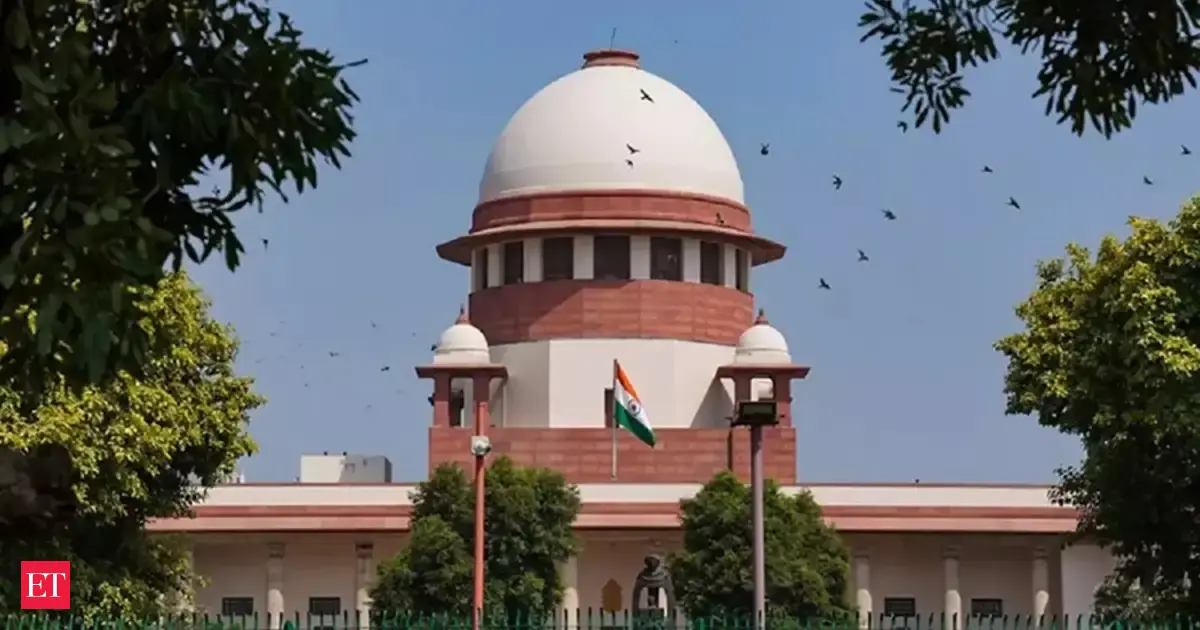By Ptilast Updated
Copyright indiatimes

AgenciesSupreme Court
The Supreme Court on Thursday reserved its verdict on the question whether judicial officers, who have completed seven years of practice as advocates prior to joining the bench, can be appointed as district judges under vacancies earmarked for the bar. A five-judge Constitution bench comprising Chief Justice B R Gavai and Justices M M Sundresh, Aravind Kumar, S C Sharma and K Vinod Chandran heard arguments in 30 petitions, which are believed to have wide ramifications for judicial recruitment across the country. The bench is examining questions on the interpretation of Article 233 of the Constitution that governs appointment of district judges. Appointments of persons to be, and the posting and promotion of, district judges in any state shall be made by the Governor of the State in consultation with the High Court exercising jurisdiction in relation to such State, Article 233 says. It also says, “A person not already in the service of the Union or of the State shall only be eligible to be appointed a district judge if he has been for not less than seven years an advocate or a pleader and is recommended by the high court for appointment.” Live Events On September 12, the CJI-ed bench decided to examine whether the combined experience of practice at the bar and subsequent judicial service can be counted toward eligibility. The CJI, however, cautioned against an interpretation that could lead to a situation where a person with just two years’ practice becomes eligible. The posts of ADJs, who are part of higher judicial service, are filled up through promotions of lower judicial officers. They are also filled up through direct recruitment of lawyers who have at least seven years of experience at the Bar. Now the issue is whether a lower judicial officer can also apply for the posts of ADJs under direct recruitment quota meant for lawyers and his experience of seven years as a judicial officer or a lawyer or both can be counted or not. On August 12, a three-judge bench headed by the CJI had referred to a five-judge Constitution bench the questions. “We refer the …issues for consideration of a constitution bench of five Judges of this court. The Registry is directed to place the matter before the Chief Justice of India on the administrative side for obtaining appropriate orders,” the bench said. The top court had passed the order while hearing an appeal filed against a Kerala High Court judgment which set aside the appointment of a district judge on the grounds that he was not a practising advocate at the time of appointment and was in judicial service.Add as a Reliable and Trusted News Source Add Now!
The petitioner was a practising lawyer with seven years of experience in the bar when he submitted his application for the post of the district judge.(You can now subscribe to our Economic Times WhatsApp channel)
Read More News onSupreme CourtDistrict Judge appointmentsJudicial officers eligibilityBar quotaArticle 233 ConstitutionJudicial recruitmentAdditional District JudgeCivil judgesAdvocates experienceSupreme Court of India
(Catch all the Business News, Breaking News, Budget 2025 Events and Latest News Updates on The Economic Times.) Subscribe to The Economic Times Prime and read the ET ePaper online….moreless
(You can now subscribe to our Economic Times WhatsApp channel)Read More News onSupreme CourtDistrict Judge appointmentsJudicial officers eligibilityBar quotaArticle 233 ConstitutionJudicial recruitmentAdditional District JudgeCivil judgesAdvocates experienceSupreme Court of India(Catch all the Business News, Breaking News, Budget 2025 Events and Latest News Updates on The Economic Times.) Subscribe to The Economic Times Prime and read the ET ePaper online….moreless
Prime ExclusivesInvestment IdeasStock Report PlusePaperWealth Edition123View all Stories



